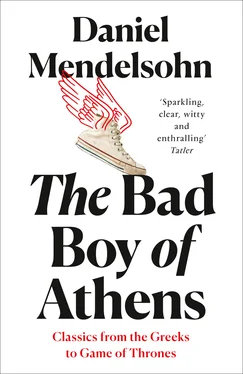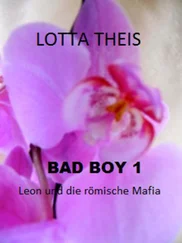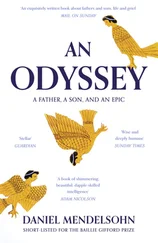1 ...8 9 10 12 13 14 ...19 A taste for violence in both theme and diction is undoubtedly what drew the younger Hughes to Seneca’s Oedipus . The rhetorical extravagance of the Stoic philosopher and dramatist’s verse, the sense of language being pushed to its furthest extremes, the famously baroque descriptions of the violence to which the body can be subjected: these have long been acknowledged as characteristic of Seneca’s style. In his introduction to the published version of the Oedipus translation, Hughes (who in works such as his 1977 collection, Gaudete , warned against rejecting the primordial aspect of nature in favour of cold intellectualism) commented on his preference for the ‘primitive’ Senecan treatment of the Oedipus myth over the ‘fully civilized’ Sophoclean version. Seneca’s blood-spattered text afforded Hughes plenty of opportunities to indulge his penchant for the uncivilized, often to great effect: his renderings of Seneca’s dense Latin have an appropriately clotted, claustrophobic feel, and don’t shy away from all the gore. The man who, in a poem called ‘February 17th’, coolly describes the aftermath of his decapitation of an unborn lamb in utero (‘a smoking slither of oils and soups and syrups’) was clearly not fazed by incest and self-mutilation. ‘My blood,’ Hughes’s Jocasta says, ‘… poured on / into him blood from my toes my finger ends / blind blood blood from my gums and eyelids / blood from the roots of my hair … / flowed into the knot of his bowels …’, etc.
Hughes’s Seneca was good, strong stuff because in Seneca, as in Hughes’s own work, theme and language are meant to work at the same pitch – the moral squalor was nicely matched by imagistic, prosodic, and linguistic squalor. Hughes was much less successful when, a generation later, he returned to classical texts – especially the dramas. You could certainly make the case that classical tragedy (and its descendants in French drama of Racine’s siècle classique ) is about nothing if not the moral squalor that attends the brute survival instinct – not least the audience’s sense of moral squalor, its guilty pleasure in not being at all like the exalted but doomed scapegoat-hero. But it is an error typical of Hughes as a translator to think that you can extract the squalid contents from the highly stylized form and still end up with something that has the power and dreadful majesty of the Oresteia or Phèdre . Commenting on The River , Professor Vendler observed that ‘Hughes notices in nature what suits his purpose’: the same is true of his approach to the classics.
It’s not that Hughes’s translations of Racine and Aeschylus can’t convey with great vividness the moral and emotional states of the characters; they can. ‘I have not drunk this strychnine day after day / As an idle refreshment,’ Hughes’s besotted Phèdre tells her stepson, with an appropriately astringent mix of pathos and wryness. His Clytemnestra has ‘a man’s dreadful will in the scabbard of her body / Like a polished blade’ – lines that Aeschylus never wrote, it’s true, but that convey the poet’s preoccupation particularly with the threateningly androgynous character of his monstrous queen. But what Hughes’s classical translations lack – disastrously – is grandeur. And the grandeur of high tragedy arises from the friction between the unruly passions and actions that are represented (incestuous longings, murderous and suicidal violence – moral squalor, in short) and the highly, if not indeed rigidly, stylized poetic forms that contain them: Racine’s glacially elegant alexandrines, or the insistent iambic trimeters of the Greek dialogue alternating at regular intervals with choral lyrics in elaborate metres. William Christie, the leader of the baroque music ensemble Les Arts Florissants, has spoken of ‘the high stylization that releases, rather than constrains, emotion’: this is a perfect description of the aesthetics of classical tragedy.
Hughes – never committed to strict poetic form to begin with, and increasingly given to loose, unrhythmical versification – is suspicious of the formal restraints that characterize the classical. Like so many contemporary translators of the classics, he mistakes artifice for stiffness, and restraint for lack of feeling, and he tries to do away with them. In his Oresteia the diction is more elevated than what you find in some translations (certainly more so than what you find in David Slavitt’s vulgar Oresteia translation for the Penn Greek Drama series, which has Clytemnestra pouring a ‘cocktail of vintage evils’ and addressing the chorus leader as ‘mister’); but still Hughes tends too much to tone things down, smooth things out, explain things away.
Few moments in Greek drama are as moving as the chorus’s description, in the Agamemnon , of Iphigenia, about to be sacrificed at Aulis by Agamemnon, pleading for her life ‘with prayers and cries to her father’ and then, even more poignantly, after she has been brutally gagged, ‘hurling at the sacrificers piteous arrows of the eyes’. But Hughes’s rather suburban Iphigenia cries, ‘Daddy, Daddy,’ and simply weeps (‘her eyes swivel in their tears’). Such choices remind you of how much the extreme figurative language that Aeschylus gives his characters has regularly confounded, not to say embarrassed, translators. The Watchman at the opening of the Agamemnon is so terrified of the adulterous, man-emulating queen that he can’t even talk to himself about it: ‘A great ox stands upon my tongue,’ he mutters ominously. The line has tremendous archaic heft and power, something that cannot be said for Hughes’s ‘Let their tongue lie still – squashed flat’.
No doubt because of the many opportunities Ovid’s Metamorphoses affords for crafting images of the animals into which so many characters are transformed, the most successful of Hughes’s late-career translations is his Tales from Ovid . But even here the poet fails to realize how important Ovid’s form is. In his Introduction, Hughes makes due reference to the Hellenophile poet’s ‘sweet, witty soul’, but he’s clearly far more interested in what he sees as the Metamorphoses ’ subject: ‘a torturous subjectivity and catastrophic extremes of passion that border on the grotesque’. He manages, in other words, to find the Seneca in Ovid. And yet the pleasure of Ovid’s epic lies precisely in the delicate tension between all those regressive, grotesque, nature-based metamorphoses and the ‘fully civilized’ verses in which they are narrated: a triumph of Culture over Nature if ever there was one. Hughes’s Ovid is often very effective, but it is not sweet and witty.
It’s tempting to think that Hughes found Euripides’ Alcestis interesting precisely because this work – the tragedian’s earliest surviving play – presents so many problems of both form and content. With its unpredictable oscillations in tone and style, it seems positively to invite abandonment of formal considerations altogether. ‘A critic’s battlefield,’ the scholar John Wilson wrote in his introduction to a 1968 collection of essays on the play. The war continues to rage on.
Alcestis was first performed in 438 BC in Athens at the Greater Dionysia, an annual combined civic and religious festival, including a dramatic competition, that must have resembled a cross between the Fourth of July, Thanksgiving, and the Oscars. The drama was presented as the fourth play in a tetralogy – the final spot, that is, in which amusingly bawdy ‘satyr plays’ were normally presented, presumably to alleviate the pity and fear triggered by the three tragedies that had preceded it onstage. (The three that preceded Alcestis , two of which seem to have dealt with the sufferings of passionate women, are lost.) And yet, this fourth play – in which Queen Alcestis voluntarily dies in place of her husband, King Admetos, when the appointed day of his death is at hand, only to be brought back from Hades by Herakles in the play’s bizarre finale – unsettlingly mixes elements of high tragedy with its scenes of comic misunderstandings, elaborate teasing, and drunken hijinks.
Читать дальше












